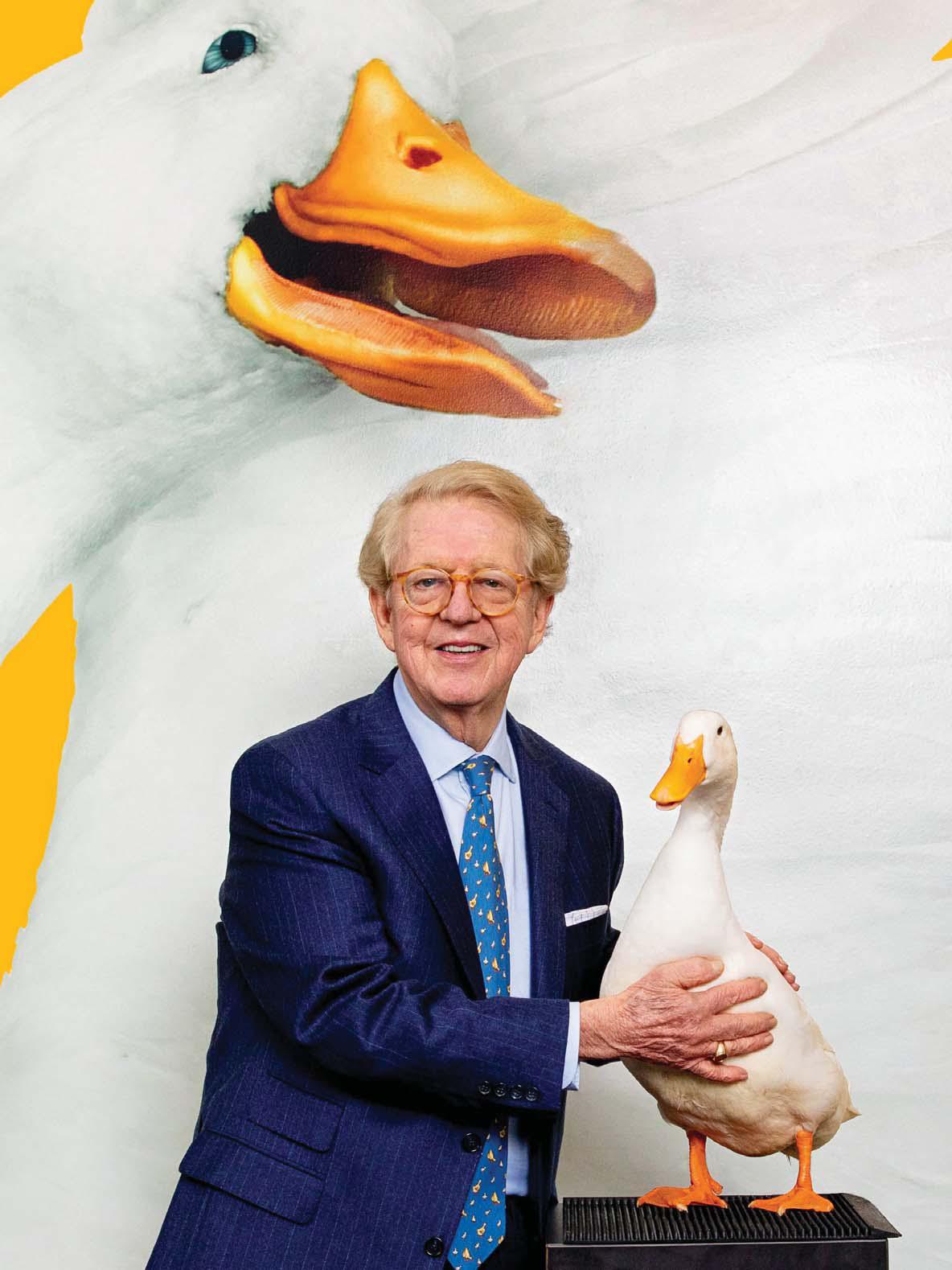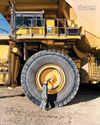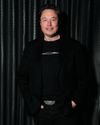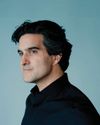
THIRTY-FOUR YEARS running the same company: It's not that long, cosmically speaking, and yet today's world is in some ways unrecognizably different from 1990. The American president then was George Bush (the first one). The Soviet Union was still standing, while China was just emerging as a global superpower. The internet had barely started crawling into U.S. homes, and smartphones were decades away from upending how we all live. It was a world before Facebook, Google, Amazon, or ChatGPT.
1990 was when Aflac chairman and CEO Dan Amos started running the oddball life insurer founded by his father and two uncles. When Amos took over, his family's company was not yet "AFLAAAAC!" The TV-commercial squawking of Aflac's duck mascot, which Amos unleashed in 2000, would go on to create a pop-culture phenomenon-one that helped change how all insurance is sold.
Over those 34 years, Amos grew his family's company into a Fortune 500 fixture, with $18.7 billion in revenue last year. Its annual sales have increased sevenfold over his tenure. Its shares were trading at around $85 in late March, far beyond their (split-adjusted) 1990 value of $1.
"I've experienced it all," Amos told me recently, sitting in Aflac's blocky tower in Columbus, Ga., which his predecessors built in 1975. At age 72, he is now the fifth-longest-serving CEO of any Fortune 500 company.
(Berkshire Hathaway's 93-year-old Warren Buffett holds the longest tenure.) It's a tremendous and rare accomplishment, especially given that the average Fortune 500 CEO lasts seven years.
At several years past the traditional (and, at some companies, mandated) U.S. retirement age of 65, Amos has outlasted many of his contemporaries and seen multiple would-be successors, including his son, retire or resign.
この記事は Fortune US の April - May 2024 版に掲載されています。
7 日間の Magzter GOLD 無料トライアルを開始して、何千もの厳選されたプレミアム ストーリー、9,000 以上の雑誌や新聞にアクセスしてください。
すでに購読者です ? サインイン
この記事は Fortune US の April - May 2024 版に掲載されています。
7 日間の Magzter GOLD 無料トライアルを開始して、何千もの厳選されたプレミアム ストーリー、9,000 以上の雑誌や新聞にアクセスしてください。
すでに購読者です? サインイン

THE NEW GOLD RUSH
Gold prices have soared amid global uncertainty and a central-bank-driven buying spree. But this time, the gold mining industry looks very different.

A New Season for Giving
As the PGA TOUR kicks off its 2025 season alongside its sponsors in Hawai'i, the organization is continuing to make an impact in local communities.

WELCOME TO ELONTOWN, USA
The small town of Bastrop, Texas (pop. 12,000), has become a home base for Elon Musk's business empire. What comes next is anyone's guess.

100 MOST POWERFUL PEOPLE
Our inaugural, authoritative ranking of the leaders whose innovation and impact have elevated them to the top of the business world.

ARE CEO SABBATICALS THE ULTIMATE POWER MOVE?
WHEN VENTURE capitalist Jeremy Liew and his wife were dating, they talked about how one day they would take a year to travel the world. \"That's how we'd know we'd made it,\" Liew says.

WHAT ARE THE BEST METRICS FOR MEASURING A STARTUP'S POTENTIAL?
IN HIS 2012 ESSAY \"Startup = Growth,\" Paul Graham talks about a 5% to 7% weekly growth rate as table stakes for startup success. If you're growing 10%, he says, you're doing \"exceptionally well.\"

TECH POLYMARKET'S ELECTION ACCURACY MADE SHAYNE COPLAN A STAR-BUT AN FBI RAID POINTS TO TROUBLE AHEAD
IN NOVEMBER, Shayne Coplan had a week he'll remember for the rest of his life: He got a phone call from the highest echelons at Mar-a-Lago. He went on TV for the first time. And his New York City apartment was raided by the FBI.

WHY BIG TECH IS THE NUCLEAR INDUSTRY'S NEW BEST FRIEND
OVER THE PAST several years, Big Tech firms like Google and Microsoft have trumpeted ambitious plans to go carbon-neutral, or even carbon-negative, by 2030. But then the generative-AI boom came along and threw a giant wrench in their plans.

WHAT PALMER LUCKEY, THE MAN REVOLUTIONIZING WARFARE, IS AFRAID OF
PALMER LUCKEY, the founder of the $14 billion Al-powered weapons startup Anduril, has become the face of change in the defense industry.

GLOBAL BUSINESS BRACES FOR TRUMP 2.0
AROUND THE WORLD in 2024, voters chose change: in South Africa, France, Britain, and Japan. But nowhere does the anti-incumbent trend matter more than in the United States.